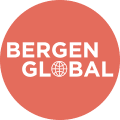


A joint initiative between the University of Bergen
and CMI – Chr. Michelsen Institute
The Social and Political Challenges of Migration
Migration is one of the major political issues in Europe today, challenging the cohesion of the European Union and affecting national elections. How should Europe handle the increasing immigration?

Mark Lopez
from Pew Research Centre presents new results on European populations attitudes on immigration, national identity and religion. Following the presentation, Mark Lopez will be accompanied by
Sagrario Segado
,
Frøy Gudbrandsen
and
Christine Jacobsen
in a panel discussion that will focus on the political and social consequences of migration to Europe. The panel will also address the complex and morally challenging question of how to deal with unaccompanied migrating minors.
Note that this even will take place at cafe Christie, Muséhagen,
Muséplass 3.
We are bringing together some of the world’s leading experts on the topic to provide a better understanding of the social and political consequences of migration to Europe. Immigration to Europe has increased over the last decades, and became an urgent issue after the “refugee crisis” in 2015 and 2016, when the number of Asylum seekers from predominantly Muslim countries multiplied. Nationalist and anti-immigrant attitudes have been prevalent in many recent national elections.
European governments have struggled to handle the large number of refugees, and to agree on an acceptable distribution of burdens between the different national states. Poland and Hungary flat out reject to contribute to EU´s migration plan. Italy has recently refused boats with refugees to dock, and thus Spain is now the main port to Europe for the refugees. The political and social consequences of the influx of refugees, is not yet known.
However, as war, natural disasters, famine and poverty are constant risks, it is not likely that the challenge will vanish in the near future. This means that European countries must find better ways to handle the reception of new asylum seekers, and to integrating immigrants into the society.
PARTICIPANTS
–
Mark Lopez, director of Global migration and demography research at
Pew Research Center (USA). He is a renowned expert on global migration and demography research.
–
Sagrario Segado, professor in psychology at
UNED and director of
European Research Center in Policies and Action on Minors and Migration (Spain). Segado has firsthand experience with the influx of migrants to Melilla, a Spanish city at the tip of north Africa.
–
Frøy Gudbrandsen, political editor in the newspaper
Bergens Tidende. She holds a PhD in Comparative Politics on Scandinavian Immigration Policy.
–
Christine M. Jacobsen, professor in anthropology at
SKOK, UiB and member of the
Migration Unit at LawTransform. She is an expert on International Migration and Ethnic Relations.
MODERATOR
–
Marit Skivenes, professor at
Centre for Research on Discretion and Paternalism, UiB, and head of the
Child Rights Unit at
Lawtransform.
Bergen Resource Center in collaboration with:
Centre for Research on Discretion and Paternalism
Centre on Law and Social Transformation (Lawtransform)
Photo Credit: Dimi Katsavaris/Unsplash

